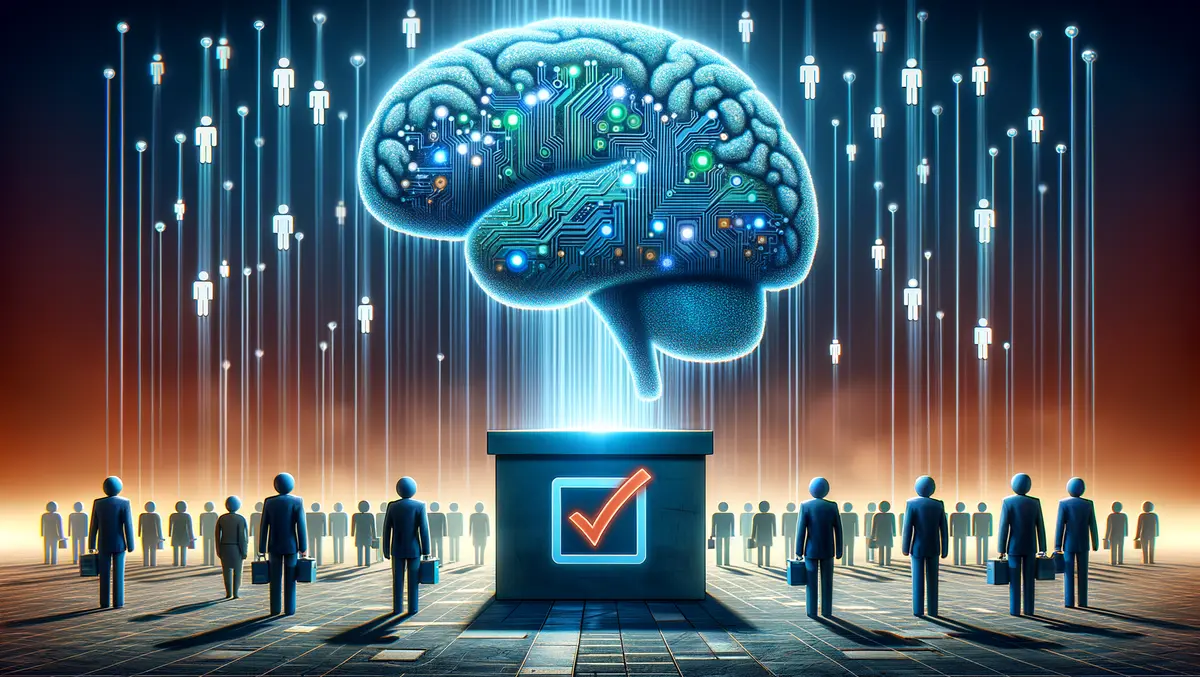
Three quarters worry over AI misuse in upcoming US elections
A recent survey jointly conducted by Yubico, a provider of hardware authentication security keys, and Defending Digital Campaigns (DDC), a nonprofit and nonpartisan organisation committed to bringing free cybersecurity tools to campaigns, has found that 78% of respondents have growing concerns over the potential misuse of Artificial Intelligence (AI) in the upcoming 2024 elections.
The poll, carried out by OnePoll, surveyed 2,000 registered U.S. voters. Its aim was to gauge public sentiment around cybersecurity in light of the forthcoming U.S. elections and apprehensions about AI. It also explored concerns about the cybersecurity of political campaigns, regardless of party affiliations.
David Treece, Vice President of Solutions Architecture at Yubico, said, "Given the sudden advancement and uncertainty of AI technology, it's not surprising that over 78% of respondents are concerned about AI-generated content being used to impersonate a political candidate or create inauthentic content, with Democrats at 79% and Republicans at 80%." He also noted that a significant proportion believe that AI will negatively affect the upcoming election's outcomes, with 42% of Democrats and 49% of Republicans expressing such concerns.
The survey also revealed that 85% of respondents don't have a high level of confidence that political campaigns effectively protect their personal information. This lack of faith is noteworthy as 42% of those who have donated to a campaign said their likelihood of donating again would change if the campaign was hacked, and 30% expressed that it could potentially alter the likelihood of a candidate receiving their vote.
Michael Kaiser, President and CEO of Defending Digital Campaigns, highlighted the importance of adopting basic cybersecurity protections. He said, "This year's election is particularly risky for cyber attacks directed at candidates, staffers, and anyone associated with a campaign. Having the right cybersecurity in place is not an option – it's essential for anyone running a political operation."
Besides AI's threat, the survey found that 43% of respondents believe that AI-generated content will negatively affect the outcome of the 2024 elections, and 41% mistook an AI voice for a human. Added to this, 52% reported having received an email and/or text message appearing to be from a campaign that they suspected was actually a phishing attempt.
In light of these concerns, potential precautions have been suggested, such as campaigns taking measures to prevent their websites from being hacked and using strong security measures like multi-factor authentication on their accounts. Furthermore, campaigners should put policies in place and train staffers on cybersecurity, enhancing campaign-level security and bolstering personal information protection.
Treece went on to discuss the importance of building trust with voters by adopting modern cybersecurity practices like phishing-resistant authentication, "Because campaigns are built on trust, potential hacks like fraudulent emails or messages sent out impersonating them...could be detrimental to campaigns...Adding a layer of protection with a physical hardware security key, like a YubiKey, to online accounts is a crucial component to ensuring that campaigns remain secure."
Helping to combat these threats, Yubico and the DDC offer YubiKeys at no cost to political campaigns, regardless of party affiliation. Yubico has donated tens of thousands of security keys as part of its philanthropic initiative, Secure it Forward, which aids campaigns in keeping campaign and personal accounts secure.


